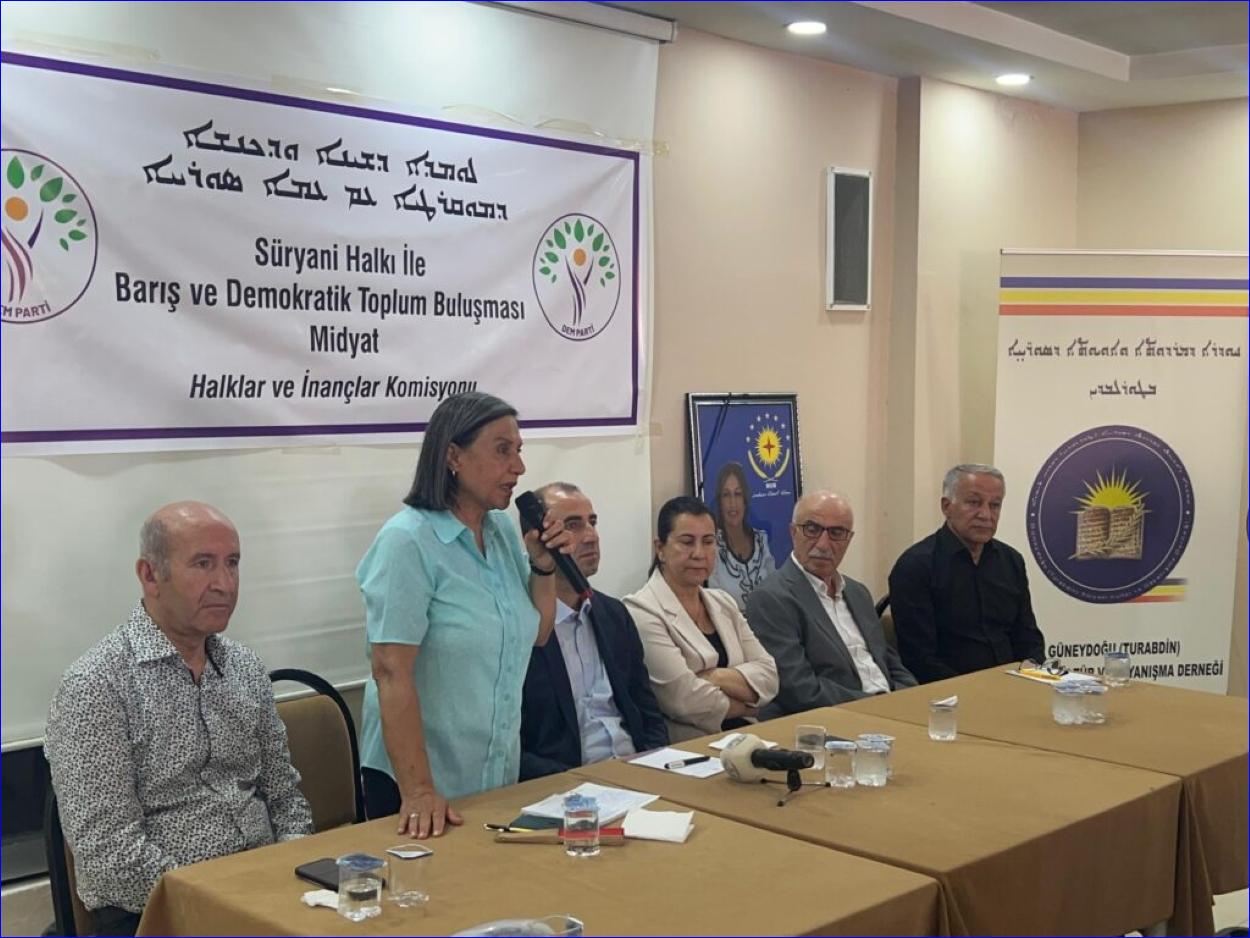


In recent remarks, Turkish Parliament Speaker Numan Kurtulmus stressed that the peace process cannot be reduced to parliamentary votes or security arrangements alone. He called for a "balanced approach" that respects both the dignity of all peoples and the sensitivities of the Turkish public. Yet for the Syriac people, a crucial question remains unresolved: Does this balance truly include all components, or is it limited to negotiations solely between the state and the Kurds?
Committee for National Solidarity, Brotherhood, and Democracy
The committee, formed in the Turkish Parliament last August under title the "National Solidarity, Brotherhood, and Democracy Committee," includes 51 deputies representing a range of parliamentary parties and is set to present its proposals at the start of the new legislative session in October. While public debates largely emphasize disarmament and the provision of legal guarantees, the Syriac people note that their presence and historical legacy are absent from these discussions.
Observers question how lasting peace can be achieved if the Syriac people--one of the region's oldest indigenous components--are overlooked. Though they are not an armed party in the conflict, they have long borne its consequences, from the Sayfo genocide in the early twentieth century to contemporary policies of cultural denial and linguistic assimilation.
Debates over the initial articles of the Turkish Constitution, which underscore the state's Turkish identity, have raised the possibility of reforms aimed at the Kurdish population. Yet legal experts argue that any such reforms should also acknowledge other historic languages, including Syriac. Today, the Syriac language remains absent from public school curricula, and Syriac churches are not recognized as independent legal entities, often subject to bureaucratic oversight. "How can national brotherhood and democracy be meaningful when an entire language and culture are denied recognition?" The legal experts stress that peace is more than the laying down of arms; it requires every component to feel that its identity is respected and protected.
In its latest session, the Committee examined the Philippines' experience with the Moro Islamic Liberation Front (MILF), where weapons were turned over to a third party under a comprehensive peace agreement. Yet the Syriac component emphasizes that Turkey also needs to reconcile with its own domestic history: thousands of Syriac villages have been burned or depopulated in recent decades, and a significant portion of the lands of monasteries and churches remain entangled in legal disputes with the state.
Former president of the Omid (Diyarbakir) Bar Association lawyer Mehmet Emin Aktar has called for a fact-finding committee to investigate violations against the Kurds. The Syriac people, in turn, assert that any genuine committee must also address the crimes committed against them, from the 1915 Sayfo genocide to the forced displacements of the 1970s and 1980s.
Researcher Wahab Coskun has advocated for laws to halt judicial prosecutions and pave the way for social integration programs. However, the Syriacs highlight another dimension: integration does not mean assimilation but rather recognition of their distinct identity. "Without recognizing the Syriacs as an indigenous people with equal rights, there will be no integration, only forced absorption," stated a Syriac association in a recent statement.
Parliament Speaker Numan Kurtulmus spoke of a distinctive Turkish model that "could be taught in global peace studies." However, the Syriac people argue that any model excluding them would be inherently incomplete from the outset. Democracy is not measured solely by a ceasefire between two parties but by its inclusivity of all peoples, including those who are unarmed.
Ultimately, the question posed by the Syriacs remains legitimate: Can a genuine peace in Turkey be discussed without explicit recognition of the existence and significance of the Assyrian people?

or register to post a comment.